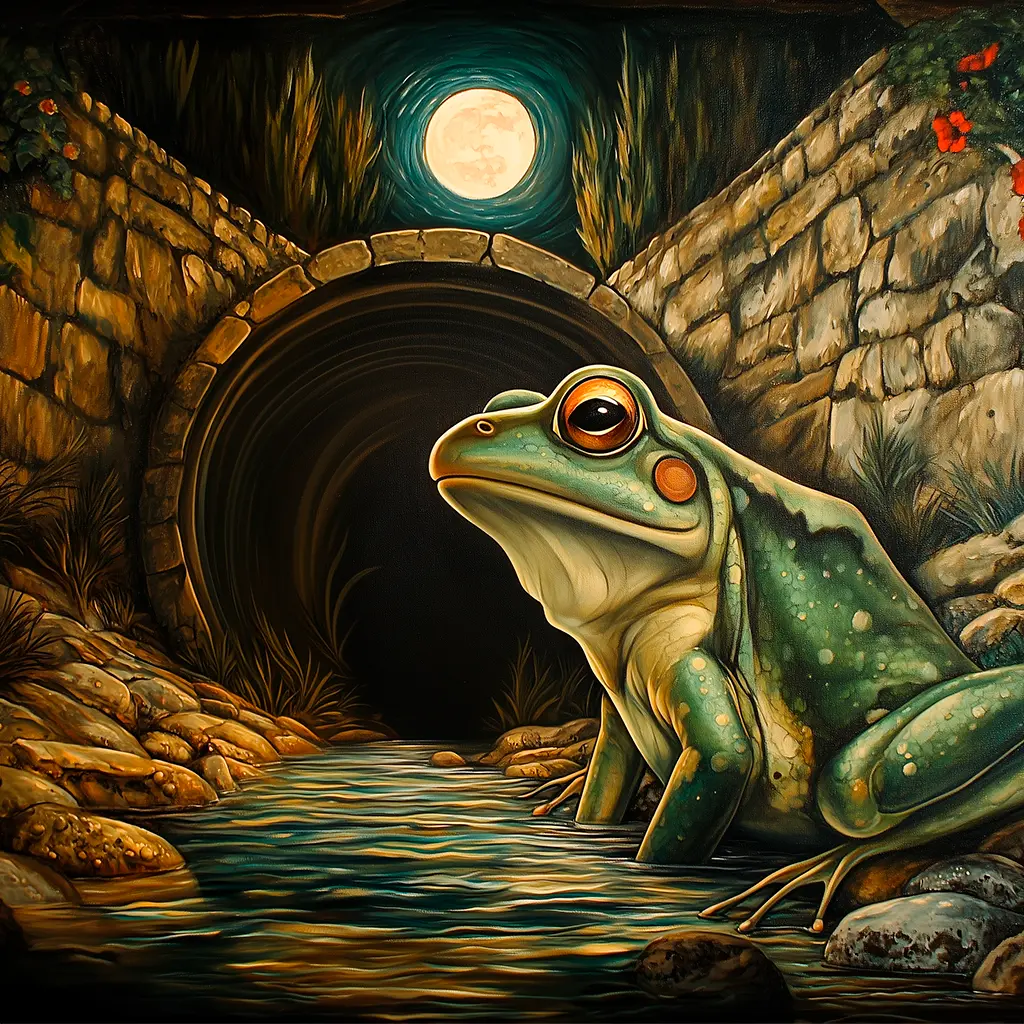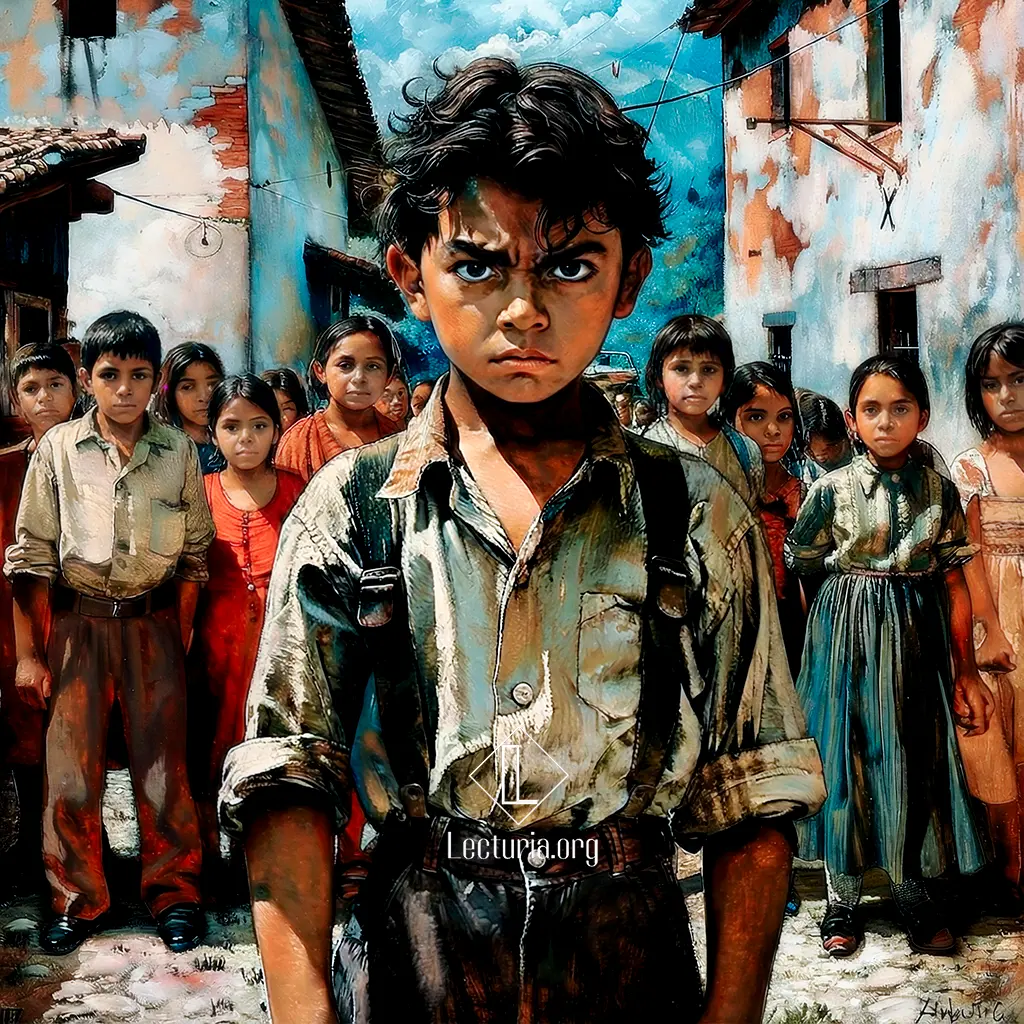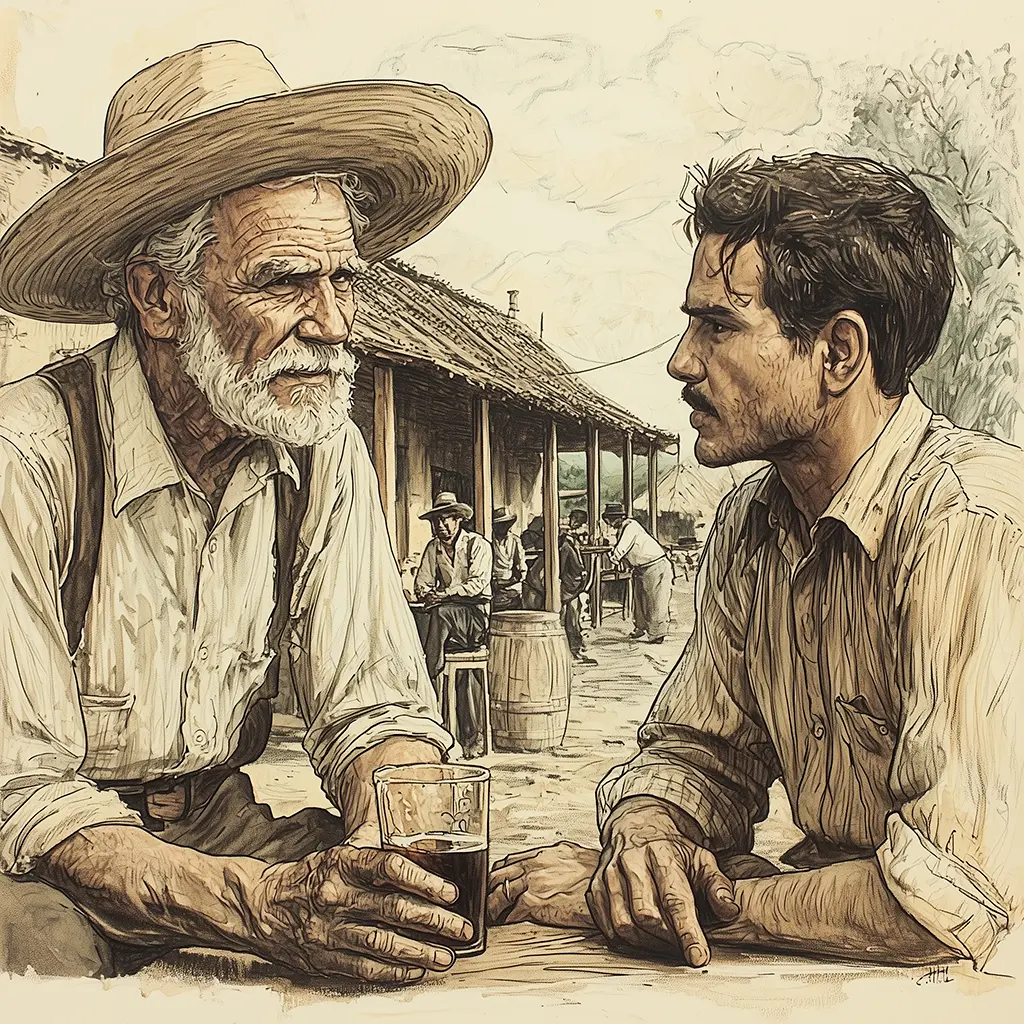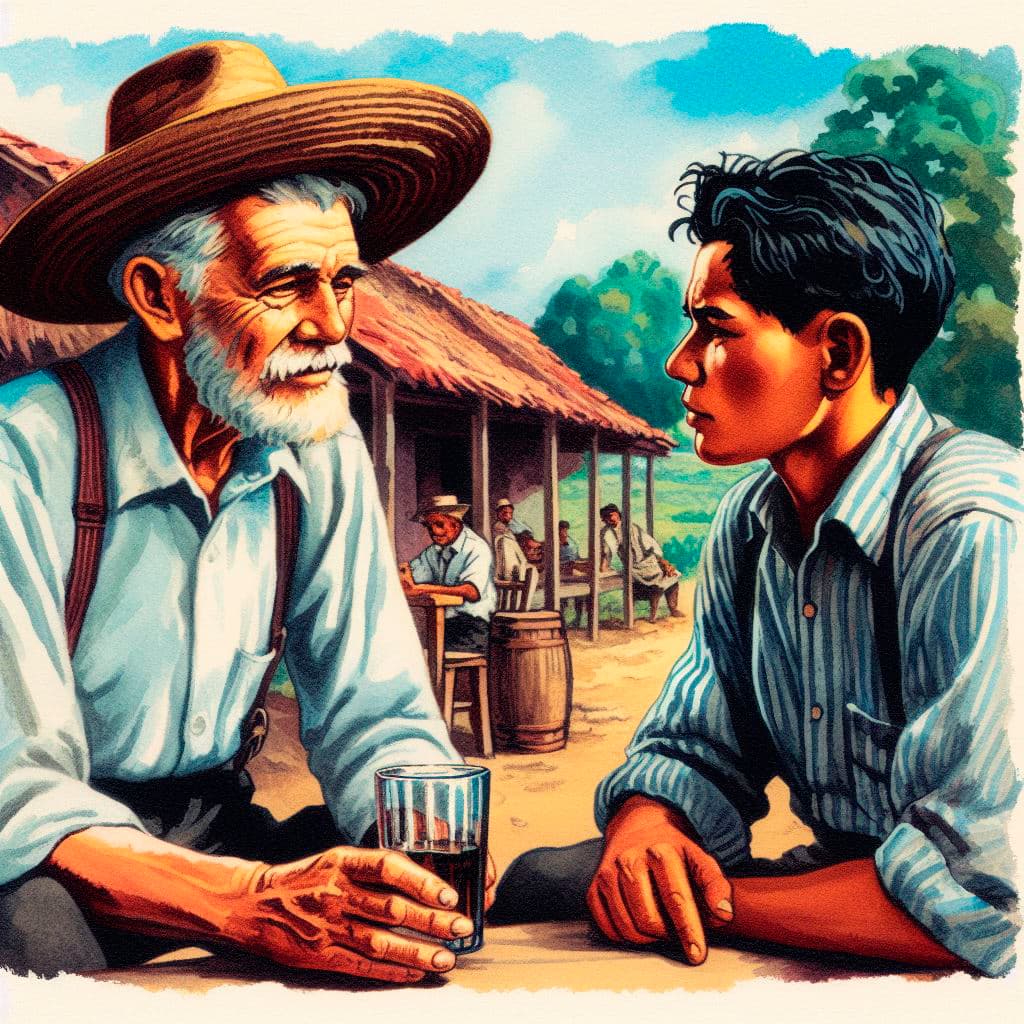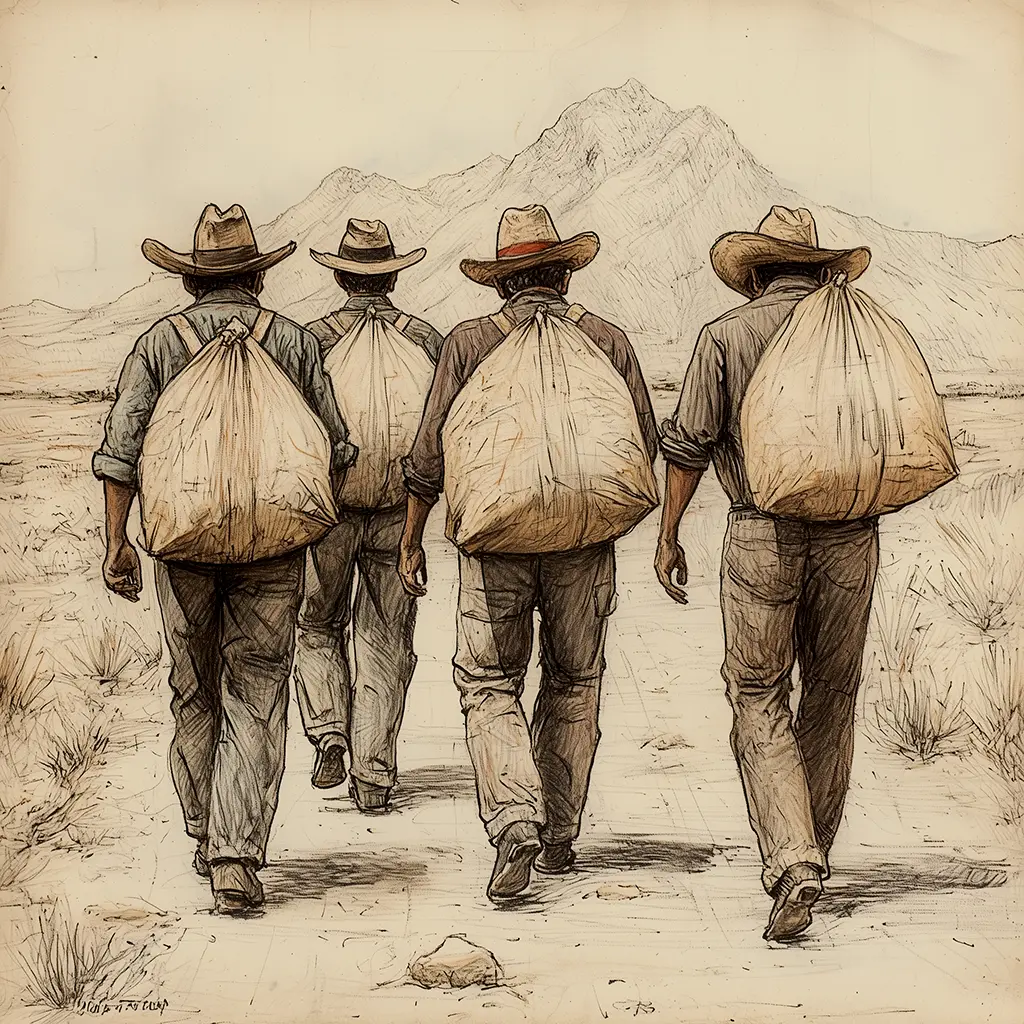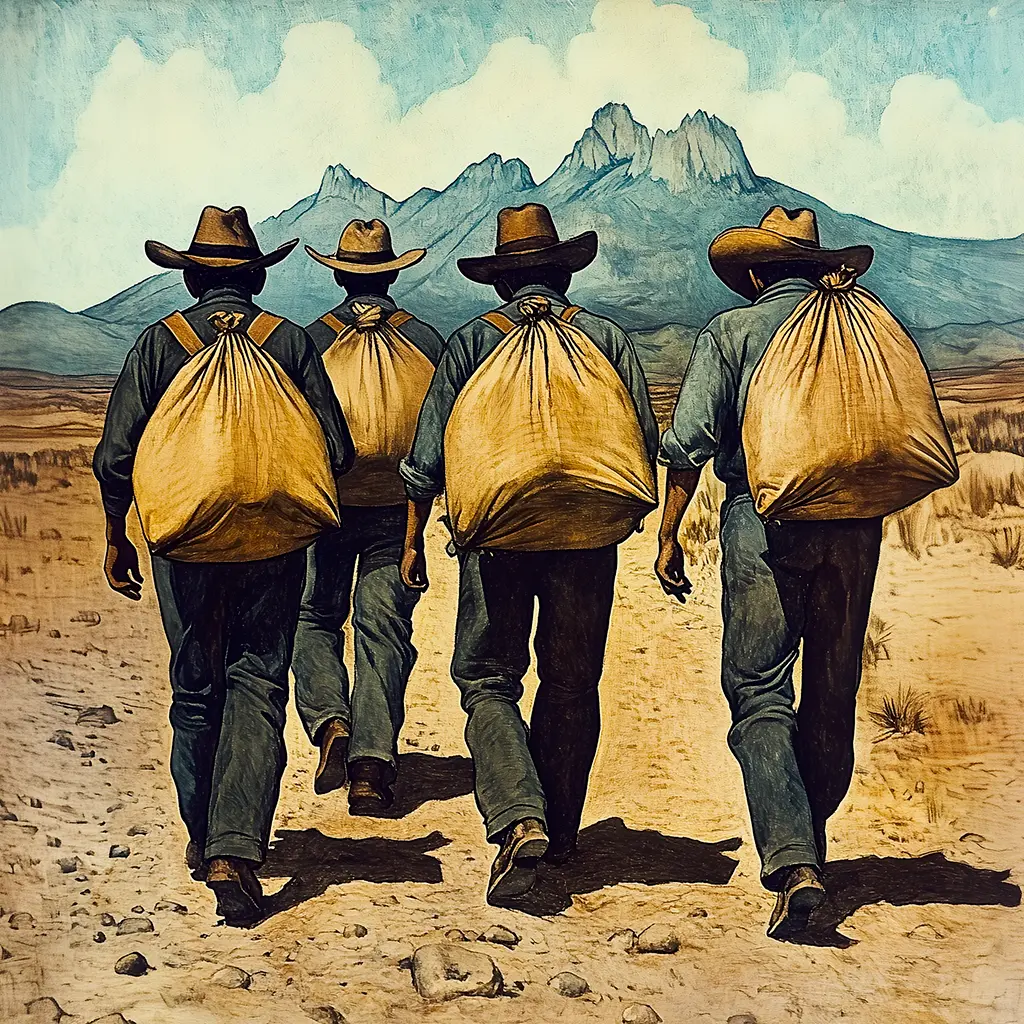Plot summary: in “Paso del Norte,” an impoverished man who has failed in his pig-selling business decides to emigrate to the North in search of work to feed his wife and five children. Before leaving, he visits his father to ask him to look after his family. Still, the conversation becomes an exchange of recriminations for a life of abandonment, poverty, and family resentment. The son finally sets off on his journey, and after being guided to the border by contacts, he tries to cross the river into the United States with other migrants, but they are ambushed by gunfire in the darkness. Although injured, he and his friend Estanislado manage to get out of the water, but the latter dies shortly afterward. The protagonist, battered and defeated, is returned to Mexico. Upon returning to the village, his father coldly informs him that his wife has left him for a muleteer and that he has sold the house to pay for the grandchildren’s expenses. Without a family or a home, the man resigns to start over and searches for his wife. The story portrays the desolation of the migrant, the failure of the dream of the North, and the breaking of family ties amid misery.
